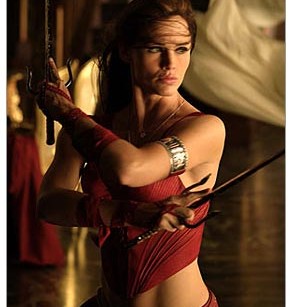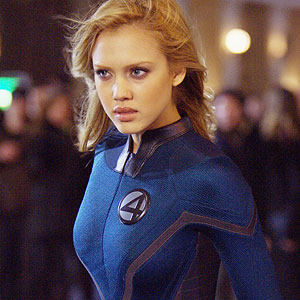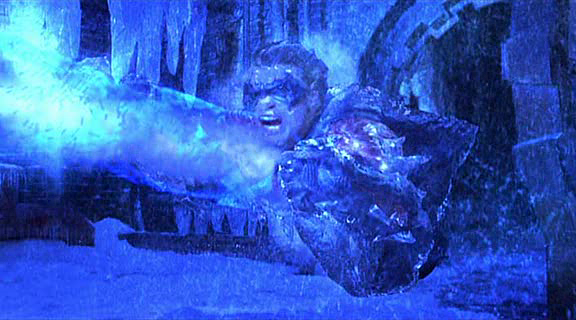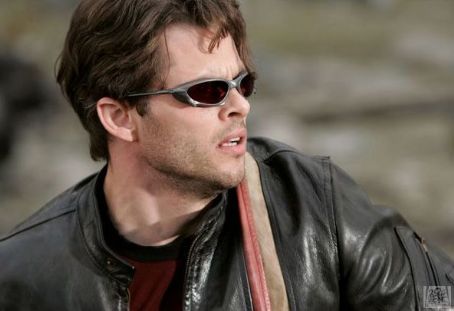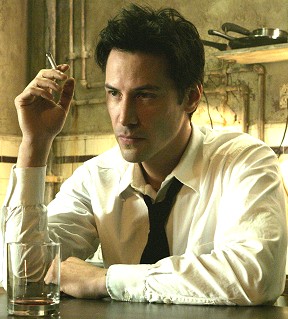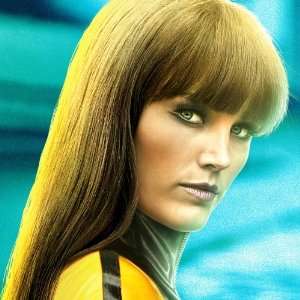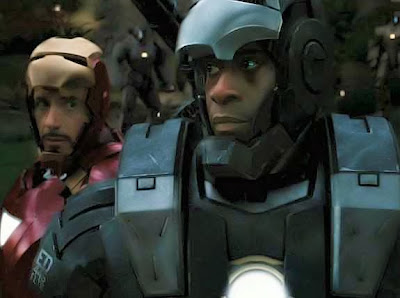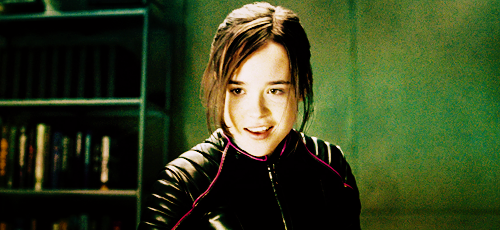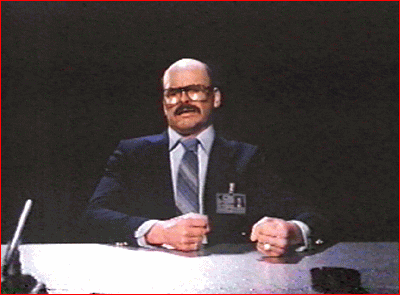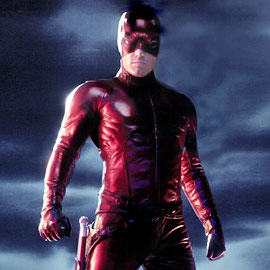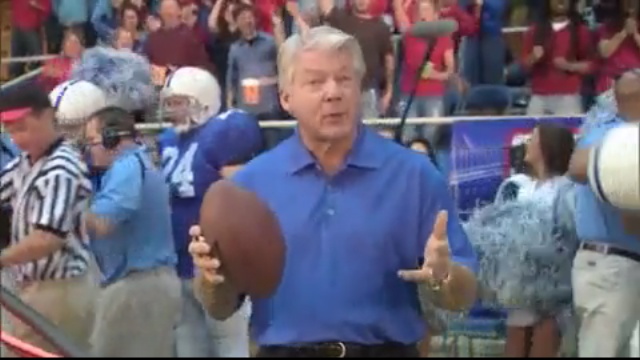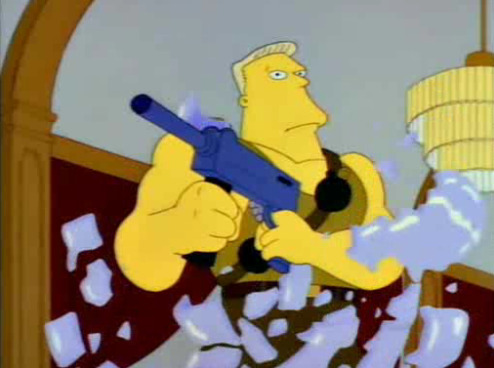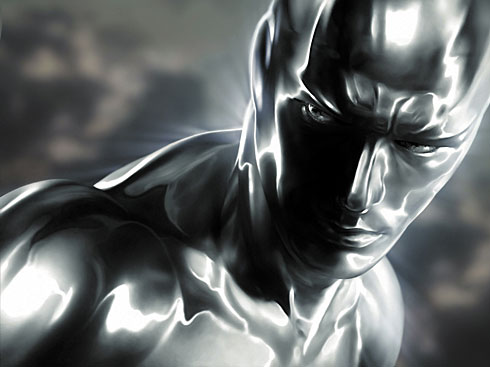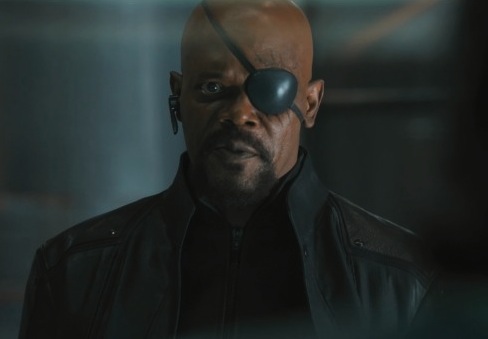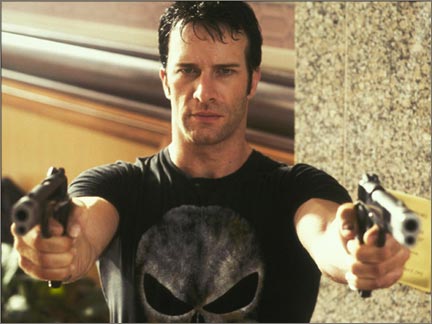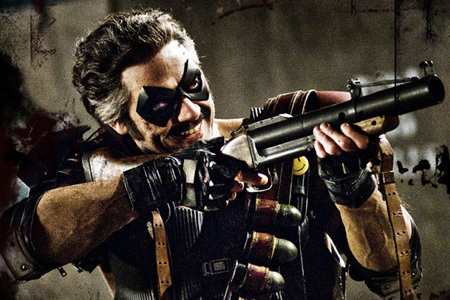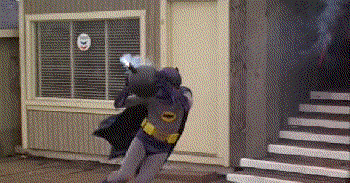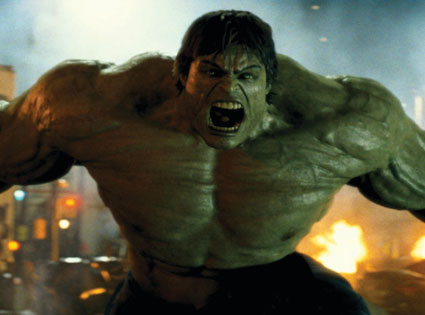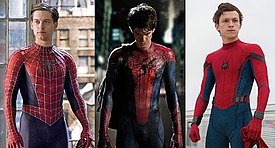Four years ago I ranked the big screen adaptations of Marvel and DC comic book supervillains in order:
http://forums.superherohype.com/showthread.php?t=309114&highlight=
It had some flaws (I don't think the parameters of what I included were clearly defined enough, and there were no tiers) but I decided to give ranking the heroes a go. This one will be a lot more thorough. What follows is a ranking of pretty much (I’ll list who I excluded in a moment) every superhero who has appeared in a Marvel or DC theatrical superhero film.
Criteria: The character must be a comic book superhero published in a Marvel or DC comic, and the film must be theatrically released.
My sources are the Wikipedia articles for “Films based on Marvel comics” and “Film based on DC comics,” excluding the movies not about superheroes (Road to Perdition, etc). I’ve seen most of them previously, and sought out the ones I didn’t see for the purposes of this list.
The characters must be considered superheroes in general. I excluded characters who were initially shown to be good in the movie but then turned into villains – thus eliminating Magneto and Mystique from First Class, as well as characters like X3’s Psylocke and Wolverine’s Deadpool who are considered to be heroes in the comics but were portrayed as nothing but villains in the movie.
I excluded the characters who were so minor that nothing could really be written about them. The full list of these includes Colossus and Angel from X3, Darwin from X-Men First Class, Bolt, Emma and kid Cyclops from Wolverine, and all the minor and older generation characters in Watchmen who we don’t see in action.
Characters portrayed by the same actor within the same continuity have all of their movies considered together, but if the actor or continuity changes they are considered separately.
There are two films that could probably still fit the criteria that I could not include – the “League of Extraordinary Gentlemen”(I saw the movie when it came out, but don’t know if they should be considered superheroes) and the 1980’s “Swamp Thing” series (I couldn’t get access to watching it). I’m also excluding serials from the 40s, as despite being released in theaters they functioned more of a TV show and not cinematic films.
All in all, this left me with a total of 68 total superheroes, so I’ve ranked them in order for your enjoyment, and placed them into tiers. It starts with the worst of the worst and then moves up towards the best.
This individual post could more or less be considered the "10 worst superhero characters in Marvel/DC films," starting with the worst, and then the rest will follow soon.
The “Putrid” Tier
68. Catwoman/Patience Phillips (Halle Berry, Catwoman, 2004)

I guess I could have excluded this since Catwoman is considered a villain in the comics, but she did get her own “superhero film” here and the character is ambiguous and had her own series in the past where she acted mostly as a hero, so I’ll include her – and of course, this portrayal gets dead last.
I had the grand misfortune of watching this movie on a plane flight after it came out. What I saw was baffling and nonsensical. The character has almost nothing to do with the Catwoman of the comics, and doesn’t even have the name Selina Kyle. The origin story of her being a zombie resurrected by cats was more or less taken from Batman Returns and had nothing to do with the comic. It was also extremely baffling that they chose to make a movie about a character closely related to Batman, but not involve Batman in the movie in any way. The most interesting thing about Catwoman in the comics is her relationship with Batman – they tried to create a facsimile by having her be involved with a cop played by Benjamin Bratt, but it rings hollow. The supporting characters and plot had nothing to do with any DC comic, either. But, more importantly, this movie was absolutely horrendous and nonsensical. The attempts to show off her body are embarrassing to watch because of how blatant they are about what they’re trying to do. Berry accepted a Razzy award for worst actress after it came out, and while I enjoy her self-awareness, it was very well deserved.
67. Howard the Duck (Voiced by Chip Zein, Howard the Duck, 1986)

I wasn’t sure whether to include this character initially, as its debatable whether he is considered a superhero. Regardless, he is a part of the Marvel comics universe, and does fight villains, so I felt he did fit the category.
Regarding the movie, everyone knows that Howard the Duck is considered one of the worst films of all time. The movie is basically unwatchable – a couple years ago, some of my friends and I conducted a “horrible movie marathon” that included such classics as Troll 2 and the Asylum’s Titanic 2. We attempted to watch Howard the Duck as the third movie, but they absolutely could not get through it and 30 minutes into the movie we had to change it to something else. So, really, it’s not even watchable in a “watch it for entertainment value because it’s so bad” sense.
Here’s the real shame, though: whenever people think of Howard the Duck, they think of this atrocity of a film. But the thing that people don’t realize, however, is that Howard the Duck was actually a pretty good comic book character. He originated in Marvel’s Man-Thing series before getting his own comic, and his own comic was more or less a precursor to Marvel’s other comedic series like John Bryne’s She-Hulk or the Deadpool series. Howard served as a great comedy series in the Marvel line, as he would break the fourth wall and was a great source for humor. A story where Howard ran for president resulted in the character getting thousand of write-in votes during the 1976 presidential election.
The movie completely ruined this by playing him straight in an abominable fashion. The effects used to create the character were horrendous, he had none of the charm or cleverness of the comic, and the plot and pacing of the film were awful. The attempts at humor fell flat completely. Howard the Duck clearly deserves a spot as one of the worst films of all time, but people who have seen the comic understand it on a much more tragic level, as a ruination of a truly humorous and clever comic book character.
66. Batgirl/Barbara Wilson (Alicia Silverstone, Batman and Robin, 1997)
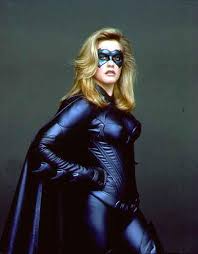
As you well know, Batman and Robin was absolute garbage, and Batgirl was a completely useless character shoehorned into the movie. For some reason she was Alfred’s niece instead of Commissioner Gordon’s daughter and they changed her last name, although I suppose that decision made some degree of sense since the Burton/Schumacher films wrongfully turned Jim Gordon into a mostly irrelevant minor side character who was only in a few scenes so having his daughter play a major role would have seemed out of place. Still, everything about this character was bizarre and out of place. It made sense for Robin to come in with some degree of crime fighting skills, as he was an acrobat. However, in this movie Barbara was just a college girl, so her having martial arts, combat, and tactical skills made zero sense and they didn’t even try to justify it, she just had them and that was that.
She got her suit and equipment by stumbling into the Batcave and having an AI programmed by Alfred say that he made all of it for her since he knew she would discover their secrets and also want to fight crime. I bet Barbara’s mother was pretty pissed when she found out that her brother had encouraged her daughter to become a costumed vigilante fighting dangerous criminals. Silverstone’s acting is also flat as a board, and the character is pretty much a joke in general who participates in several absolutely ludicrous scenes.
65. Steel/John Henry Irons (Shaquille O’Neal, Steel, 1997)

Another movie where the reason for making it was absolutely baffling. Steel is a character directly inspired by Superman who would not be a superhero without him, so to give him a standalone movie that didn’t mention Superman at all was simply bizarre. To make matters worse, he is portrayed by NBA player Shaquille O’Neal, who as you may suspect is not exactly a master thespian. The plot doesn’t make any sense, either. John Henry Irons goes home to his grandma’s house and starts interacting with some young kid who also lives there, and we are never told what the relationship between the two is. He also mysteriously obtains a crime lab in the middle of a junk yard, and abducts his crippled partner from a hospital while people applaud. Yeap. Also, his “metal” suit is clearly made out of rubber. Also there is an extended fourth-wall breaking scene where Steel is supposed to throw a grenade through a hole that not-so-subtly references the fact that Shaq never makes free throws in the NBA. HARDY HAR HAR. Richard Roundtree is also an actor in the movie, and there is another fourth wall-breaking joke where he refers to Steel’s hammer and says he really enjoys the “shaft.” Enough said.
64. Supergirl/Kara Zor-el/Linda Lee (Helen Slater, Supergirl, 1984)
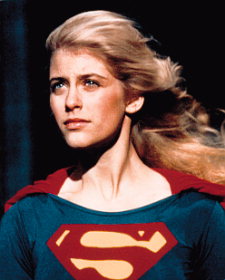
You may be noticing a pattern in the sense that three of the bottom five entries are characters who are closely linked with popular superheroes that are somehow given stand alone movies devoid of said linking popular superhero. At least the Supergirl movie is allowed to reference Superman, giving a brief exposition towards the beginning that he is away in space on a mission and thus can’t impact the events of the film. Still, this movie is a baffling mess. Kara starts out as a Krypton explosion survivor who was on some sort of Kryptonian space station at the time of the explosion (we assume, but it isn’t quite spelled out.) Kara escapes the space station to reclaim some important Deus Ex Machine weapon on Earth, and then she suddenly goes from being on the space station into bursting out of a lake in full Supergirl costume. What? How did she obtain that costume? Why did she decide to wear it and become Supergirl?
Then, even though her mission was to re-obtain the powerful Kryptonian weapon that was lost on Earth, she proceeds to ignore it entirely and screw around on Earth for nearly an hour, enrolling at a school for no reason. A lot of the rest of the plot centers on some sort of love triangle between Supergirl, the female villain, and some gardener guy. There are also multiple instances where Supergirl is trapped in some sort of peril where she conveniently forgets the fact that she can fly. Another example of B-movie schlock nonsense.
63. The Spirit/Denny Colt (Gabriel Macht, The Spirit, 2008)
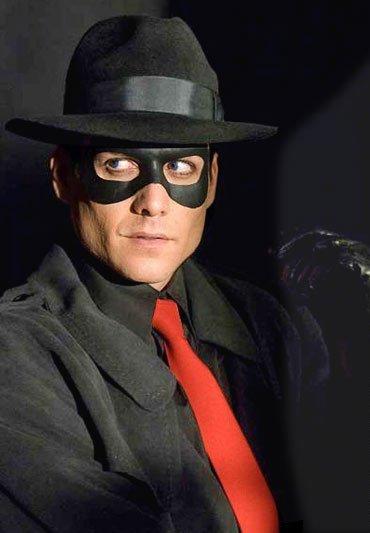
Although this character originated in a comic strip, he was indeed given a DC comic and was introduced into the DC comics universe, so I’ve included him here.
In any case, while a successful comic strip and comic book character, the character in the movie has literally zero personality. He does his role in the film without displaying an ounce of anything distinguishing, and Macht’s portrayal is flat and shows no emotion whatsoever. Sin City was a quite enjoyable movie, and Frank Miller’s solo directing effort here attempts to emulate it, but Miller completely fails and misses out on the fact that Sin City had enjoyable characters who had personalities. The movie is incredibly bland and forgettable, and the character himself has the same fate. It is also incredibly bizarre that the film (despite being written and directed by Miller, who worked on the comic book series) would include a bizarre character twist that more or less ruined the core of the character – in the strip and comics, the Spirit was a powerless average Joe who fought crime, but in the movie, he is given a Wolverine-esque healing factor because of his returning from the grave. What? A universally panned character and movie, and deservedly so. Miller should stick to pen and paper.
62. Batman/Bruce Wayne (George Clooney, Batman and Robin, 1997)
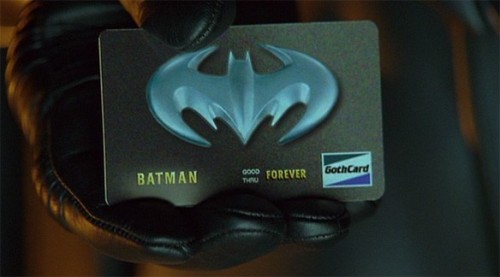
On paper, George Clooney is a pretty good casting choice for Batman. Great acting ability, a very fitting presence and jawline, an ability to seamlessly transition between billionaire playboy and serious hero.
The key words, however, are “on paper.”
This list doesn’t just consider acting ability or screen presence – it considers how the character was used and directed in the script. And from that perspective, you can’t really get much worse than the Batman portrayed in the all-time film disaster “Batman & Robin.”
He spouts off cheesy one liners. He has very little depth or emotion. He cavorts around in public as Batman for some reason and acts as a public celebrity, going to charity auctions and doing public speaking, destroying the mystery of the character. He immediately allows a young girl with no combat experience to join his crew, risking her life.
In all fairness, the scenes where Wayne interacts with the dying Alfred are actually somewhat decent scenes that give a hint of the long relationship the two have had, and Clooney isn’t half bad in those scenes.
That being said…I think the picture I choose tells you everything you need to know.
61. Jonah Hex (Josh Brolin, Jonah Hex, 2008)

Jonah Hex in the comics is a pretty cool character, and the idea of a Batman-like character who operates in the old west was a good concept. The episode of Batman the Animated series that focuses on him trying to stop Ra’s Al Ghul is pretty cool. Part of his appeal is that, like Batman, Hex has no supernatural abilities, relying on his instincts, quick draw, tracking abilities, and cleverness.
A movie based on him could have been pretty good – his story is simple, and westerns are easy to pull off and can make for great movies with good action. And hey, Josh Brolin is a pretty good actor, and he’s got a strong supporting cast that includes John Malkovich, Michael Fassbender, Michael Shannon (as well as, uh, Gob Bluth for some reason.)
Turns out everything could go wrong. To start out with, they completely change around his origin – he still starts out as a Confederate soldier who changes his mind, but they made Hex a person seeking revenge for the death of his wife and son. I guess it’s not that big of a deal to change his origin, since not too many people are probably familiar with it, but did they really have to pick something so cliché and copy/paste the Punisher’s motivations?
More importantly, much like the Spirit, they completely ruin him by giving him supernatural abilities. He now has the ability to resurrect the dead for a brief amount of time if he touches their corpse for as long as he touches them. The resurrected corpse is also forced to only speak the truth for some reason. I will give them credit that this is a somewhat unique and creative power – but it has absolutely no place in a Jonah Hex film. It almost seems like they put it in as an easy replacement of Hex’s (non-supernatural) elite tracking and crime scene skills. Oh, and guess who gave him those abilities and what the source is? You get no points for correctly “magic Indians.” The Native Americans who Hex was raised by and interacted with in the comics were certainly not supernatural, so to bring in such a cliché is just stupid.
Also, the movie is a jumbled mess. Scenes, characters and subplots appear and reappear seemingly at random. The characters will frequently show up at various places across the US in very short periods of time – for example, in the finale, the characters basically teleport to Washington DC.
Brolin I suppose has some sort of charm and isn’t all that bad, but the character is quite poorly written. His romance with a prostitute played by Megan Fox is never explained – they just instantly fall in love with each other, that’s it.
It’s also one of the shortest movies I’ve ever seen, I honestly think it’s only an hour and fifteen minutes. The official runtime says 81 minutes, and since that includes pre-title screens and credits I think an hour fifteen is about accurate. So he beats out the next entry since I didn’t have to sit through as much.
60. Green Lantern/Hal Jordan (Ryan Reynolds, Green Lantern, 2011)
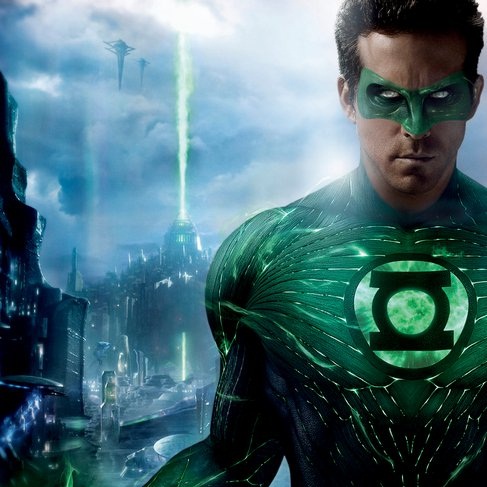
Besides the previously mentioned Jonah Hex, Green Lantern was DC’s first attempt to establish a film franchise around a superhero other than Superman or Batman. And boy, did it fail.
Reynold’s carefree playboy character had very little in common with the straightforward Hal Jordan of the comic book series. In and of itself, this was not a mistake – it made sense that the producers didn’t consider a straightforward adaptation of Jordan to be cinematically appealing, so infusing him with a different personality was not a terrible decision. What they gave him, however, was pretty unbearable.
Jordan embarks on a pretty eye-rolling and stereotypical superhero origin story and we never really connect with the character. It doesn’t help that the suit itself is composed entirely of CGI, breaking our suspension of disbelief.
In addition, the nature of Green Lantern’s powers is a wonderful venue to showcase the showrunner’s creativity, as the ring allows the users to create pretty much anything. This opportunity was completely squandered, however – the most creative thing he comes up with to use the ring’s powers for is some kind of Hotwheels track to save a helicopter. The rest is just a standard “big green fist” or whatnot.
In the initial stages of this movie, there was some controversy as the movie was initially conceived as comedy vehicle for actor Jack Black (who would appear as a new character given the Green Lantern ring, not Hal Jordan). I can understand why hardcore fans of Green Lantern would be upset by this, but I actually read the entirety of the Jack Black Green Lantern comedy script, and it elicited three or four genuine laughs from me. Although Green Lantern fans would consider it a bastardization, I genuinely believe it would have lent towards a better overall movie.
There's one last entry in the putrid tier, and then after that is the "Not quite putrid, still bad, but more tolerable" tier.
http://forums.superherohype.com/showthread.php?t=309114&highlight=
It had some flaws (I don't think the parameters of what I included were clearly defined enough, and there were no tiers) but I decided to give ranking the heroes a go. This one will be a lot more thorough. What follows is a ranking of pretty much (I’ll list who I excluded in a moment) every superhero who has appeared in a Marvel or DC theatrical superhero film.
Criteria: The character must be a comic book superhero published in a Marvel or DC comic, and the film must be theatrically released.
My sources are the Wikipedia articles for “Films based on Marvel comics” and “Film based on DC comics,” excluding the movies not about superheroes (Road to Perdition, etc). I’ve seen most of them previously, and sought out the ones I didn’t see for the purposes of this list.
The characters must be considered superheroes in general. I excluded characters who were initially shown to be good in the movie but then turned into villains – thus eliminating Magneto and Mystique from First Class, as well as characters like X3’s Psylocke and Wolverine’s Deadpool who are considered to be heroes in the comics but were portrayed as nothing but villains in the movie.
I excluded the characters who were so minor that nothing could really be written about them. The full list of these includes Colossus and Angel from X3, Darwin from X-Men First Class, Bolt, Emma and kid Cyclops from Wolverine, and all the minor and older generation characters in Watchmen who we don’t see in action.
Characters portrayed by the same actor within the same continuity have all of their movies considered together, but if the actor or continuity changes they are considered separately.
There are two films that could probably still fit the criteria that I could not include – the “League of Extraordinary Gentlemen”(I saw the movie when it came out, but don’t know if they should be considered superheroes) and the 1980’s “Swamp Thing” series (I couldn’t get access to watching it). I’m also excluding serials from the 40s, as despite being released in theaters they functioned more of a TV show and not cinematic films.
All in all, this left me with a total of 68 total superheroes, so I’ve ranked them in order for your enjoyment, and placed them into tiers. It starts with the worst of the worst and then moves up towards the best.
This individual post could more or less be considered the "10 worst superhero characters in Marvel/DC films," starting with the worst, and then the rest will follow soon.
The “Putrid” Tier
68. Catwoman/Patience Phillips (Halle Berry, Catwoman, 2004)

I guess I could have excluded this since Catwoman is considered a villain in the comics, but she did get her own “superhero film” here and the character is ambiguous and had her own series in the past where she acted mostly as a hero, so I’ll include her – and of course, this portrayal gets dead last.
I had the grand misfortune of watching this movie on a plane flight after it came out. What I saw was baffling and nonsensical. The character has almost nothing to do with the Catwoman of the comics, and doesn’t even have the name Selina Kyle. The origin story of her being a zombie resurrected by cats was more or less taken from Batman Returns and had nothing to do with the comic. It was also extremely baffling that they chose to make a movie about a character closely related to Batman, but not involve Batman in the movie in any way. The most interesting thing about Catwoman in the comics is her relationship with Batman – they tried to create a facsimile by having her be involved with a cop played by Benjamin Bratt, but it rings hollow. The supporting characters and plot had nothing to do with any DC comic, either. But, more importantly, this movie was absolutely horrendous and nonsensical. The attempts to show off her body are embarrassing to watch because of how blatant they are about what they’re trying to do. Berry accepted a Razzy award for worst actress after it came out, and while I enjoy her self-awareness, it was very well deserved.
67. Howard the Duck (Voiced by Chip Zein, Howard the Duck, 1986)

I wasn’t sure whether to include this character initially, as its debatable whether he is considered a superhero. Regardless, he is a part of the Marvel comics universe, and does fight villains, so I felt he did fit the category.
Regarding the movie, everyone knows that Howard the Duck is considered one of the worst films of all time. The movie is basically unwatchable – a couple years ago, some of my friends and I conducted a “horrible movie marathon” that included such classics as Troll 2 and the Asylum’s Titanic 2. We attempted to watch Howard the Duck as the third movie, but they absolutely could not get through it and 30 minutes into the movie we had to change it to something else. So, really, it’s not even watchable in a “watch it for entertainment value because it’s so bad” sense.
Here’s the real shame, though: whenever people think of Howard the Duck, they think of this atrocity of a film. But the thing that people don’t realize, however, is that Howard the Duck was actually a pretty good comic book character. He originated in Marvel’s Man-Thing series before getting his own comic, and his own comic was more or less a precursor to Marvel’s other comedic series like John Bryne’s She-Hulk or the Deadpool series. Howard served as a great comedy series in the Marvel line, as he would break the fourth wall and was a great source for humor. A story where Howard ran for president resulted in the character getting thousand of write-in votes during the 1976 presidential election.
The movie completely ruined this by playing him straight in an abominable fashion. The effects used to create the character were horrendous, he had none of the charm or cleverness of the comic, and the plot and pacing of the film were awful. The attempts at humor fell flat completely. Howard the Duck clearly deserves a spot as one of the worst films of all time, but people who have seen the comic understand it on a much more tragic level, as a ruination of a truly humorous and clever comic book character.
66. Batgirl/Barbara Wilson (Alicia Silverstone, Batman and Robin, 1997)
As you well know, Batman and Robin was absolute garbage, and Batgirl was a completely useless character shoehorned into the movie. For some reason she was Alfred’s niece instead of Commissioner Gordon’s daughter and they changed her last name, although I suppose that decision made some degree of sense since the Burton/Schumacher films wrongfully turned Jim Gordon into a mostly irrelevant minor side character who was only in a few scenes so having his daughter play a major role would have seemed out of place. Still, everything about this character was bizarre and out of place. It made sense for Robin to come in with some degree of crime fighting skills, as he was an acrobat. However, in this movie Barbara was just a college girl, so her having martial arts, combat, and tactical skills made zero sense and they didn’t even try to justify it, she just had them and that was that.
She got her suit and equipment by stumbling into the Batcave and having an AI programmed by Alfred say that he made all of it for her since he knew she would discover their secrets and also want to fight crime. I bet Barbara’s mother was pretty pissed when she found out that her brother had encouraged her daughter to become a costumed vigilante fighting dangerous criminals. Silverstone’s acting is also flat as a board, and the character is pretty much a joke in general who participates in several absolutely ludicrous scenes.
65. Steel/John Henry Irons (Shaquille O’Neal, Steel, 1997)

Another movie where the reason for making it was absolutely baffling. Steel is a character directly inspired by Superman who would not be a superhero without him, so to give him a standalone movie that didn’t mention Superman at all was simply bizarre. To make matters worse, he is portrayed by NBA player Shaquille O’Neal, who as you may suspect is not exactly a master thespian. The plot doesn’t make any sense, either. John Henry Irons goes home to his grandma’s house and starts interacting with some young kid who also lives there, and we are never told what the relationship between the two is. He also mysteriously obtains a crime lab in the middle of a junk yard, and abducts his crippled partner from a hospital while people applaud. Yeap. Also, his “metal” suit is clearly made out of rubber. Also there is an extended fourth-wall breaking scene where Steel is supposed to throw a grenade through a hole that not-so-subtly references the fact that Shaq never makes free throws in the NBA. HARDY HAR HAR. Richard Roundtree is also an actor in the movie, and there is another fourth wall-breaking joke where he refers to Steel’s hammer and says he really enjoys the “shaft.” Enough said.
64. Supergirl/Kara Zor-el/Linda Lee (Helen Slater, Supergirl, 1984)

You may be noticing a pattern in the sense that three of the bottom five entries are characters who are closely linked with popular superheroes that are somehow given stand alone movies devoid of said linking popular superhero. At least the Supergirl movie is allowed to reference Superman, giving a brief exposition towards the beginning that he is away in space on a mission and thus can’t impact the events of the film. Still, this movie is a baffling mess. Kara starts out as a Krypton explosion survivor who was on some sort of Kryptonian space station at the time of the explosion (we assume, but it isn’t quite spelled out.) Kara escapes the space station to reclaim some important Deus Ex Machine weapon on Earth, and then she suddenly goes from being on the space station into bursting out of a lake in full Supergirl costume. What? How did she obtain that costume? Why did she decide to wear it and become Supergirl?
Then, even though her mission was to re-obtain the powerful Kryptonian weapon that was lost on Earth, she proceeds to ignore it entirely and screw around on Earth for nearly an hour, enrolling at a school for no reason. A lot of the rest of the plot centers on some sort of love triangle between Supergirl, the female villain, and some gardener guy. There are also multiple instances where Supergirl is trapped in some sort of peril where she conveniently forgets the fact that she can fly. Another example of B-movie schlock nonsense.
63. The Spirit/Denny Colt (Gabriel Macht, The Spirit, 2008)

Although this character originated in a comic strip, he was indeed given a DC comic and was introduced into the DC comics universe, so I’ve included him here.
In any case, while a successful comic strip and comic book character, the character in the movie has literally zero personality. He does his role in the film without displaying an ounce of anything distinguishing, and Macht’s portrayal is flat and shows no emotion whatsoever. Sin City was a quite enjoyable movie, and Frank Miller’s solo directing effort here attempts to emulate it, but Miller completely fails and misses out on the fact that Sin City had enjoyable characters who had personalities. The movie is incredibly bland and forgettable, and the character himself has the same fate. It is also incredibly bizarre that the film (despite being written and directed by Miller, who worked on the comic book series) would include a bizarre character twist that more or less ruined the core of the character – in the strip and comics, the Spirit was a powerless average Joe who fought crime, but in the movie, he is given a Wolverine-esque healing factor because of his returning from the grave. What? A universally panned character and movie, and deservedly so. Miller should stick to pen and paper.
62. Batman/Bruce Wayne (George Clooney, Batman and Robin, 1997)

On paper, George Clooney is a pretty good casting choice for Batman. Great acting ability, a very fitting presence and jawline, an ability to seamlessly transition between billionaire playboy and serious hero.
The key words, however, are “on paper.”
This list doesn’t just consider acting ability or screen presence – it considers how the character was used and directed in the script. And from that perspective, you can’t really get much worse than the Batman portrayed in the all-time film disaster “Batman & Robin.”
He spouts off cheesy one liners. He has very little depth or emotion. He cavorts around in public as Batman for some reason and acts as a public celebrity, going to charity auctions and doing public speaking, destroying the mystery of the character. He immediately allows a young girl with no combat experience to join his crew, risking her life.
In all fairness, the scenes where Wayne interacts with the dying Alfred are actually somewhat decent scenes that give a hint of the long relationship the two have had, and Clooney isn’t half bad in those scenes.
That being said…I think the picture I choose tells you everything you need to know.
61. Jonah Hex (Josh Brolin, Jonah Hex, 2008)

Jonah Hex in the comics is a pretty cool character, and the idea of a Batman-like character who operates in the old west was a good concept. The episode of Batman the Animated series that focuses on him trying to stop Ra’s Al Ghul is pretty cool. Part of his appeal is that, like Batman, Hex has no supernatural abilities, relying on his instincts, quick draw, tracking abilities, and cleverness.
A movie based on him could have been pretty good – his story is simple, and westerns are easy to pull off and can make for great movies with good action. And hey, Josh Brolin is a pretty good actor, and he’s got a strong supporting cast that includes John Malkovich, Michael Fassbender, Michael Shannon (as well as, uh, Gob Bluth for some reason.)
Turns out everything could go wrong. To start out with, they completely change around his origin – he still starts out as a Confederate soldier who changes his mind, but they made Hex a person seeking revenge for the death of his wife and son. I guess it’s not that big of a deal to change his origin, since not too many people are probably familiar with it, but did they really have to pick something so cliché and copy/paste the Punisher’s motivations?
More importantly, much like the Spirit, they completely ruin him by giving him supernatural abilities. He now has the ability to resurrect the dead for a brief amount of time if he touches their corpse for as long as he touches them. The resurrected corpse is also forced to only speak the truth for some reason. I will give them credit that this is a somewhat unique and creative power – but it has absolutely no place in a Jonah Hex film. It almost seems like they put it in as an easy replacement of Hex’s (non-supernatural) elite tracking and crime scene skills. Oh, and guess who gave him those abilities and what the source is? You get no points for correctly “magic Indians.” The Native Americans who Hex was raised by and interacted with in the comics were certainly not supernatural, so to bring in such a cliché is just stupid.
Also, the movie is a jumbled mess. Scenes, characters and subplots appear and reappear seemingly at random. The characters will frequently show up at various places across the US in very short periods of time – for example, in the finale, the characters basically teleport to Washington DC.
Brolin I suppose has some sort of charm and isn’t all that bad, but the character is quite poorly written. His romance with a prostitute played by Megan Fox is never explained – they just instantly fall in love with each other, that’s it.
It’s also one of the shortest movies I’ve ever seen, I honestly think it’s only an hour and fifteen minutes. The official runtime says 81 minutes, and since that includes pre-title screens and credits I think an hour fifteen is about accurate. So he beats out the next entry since I didn’t have to sit through as much.
60. Green Lantern/Hal Jordan (Ryan Reynolds, Green Lantern, 2011)

Besides the previously mentioned Jonah Hex, Green Lantern was DC’s first attempt to establish a film franchise around a superhero other than Superman or Batman. And boy, did it fail.
Reynold’s carefree playboy character had very little in common with the straightforward Hal Jordan of the comic book series. In and of itself, this was not a mistake – it made sense that the producers didn’t consider a straightforward adaptation of Jordan to be cinematically appealing, so infusing him with a different personality was not a terrible decision. What they gave him, however, was pretty unbearable.
Jordan embarks on a pretty eye-rolling and stereotypical superhero origin story and we never really connect with the character. It doesn’t help that the suit itself is composed entirely of CGI, breaking our suspension of disbelief.
In addition, the nature of Green Lantern’s powers is a wonderful venue to showcase the showrunner’s creativity, as the ring allows the users to create pretty much anything. This opportunity was completely squandered, however – the most creative thing he comes up with to use the ring’s powers for is some kind of Hotwheels track to save a helicopter. The rest is just a standard “big green fist” or whatnot.
In the initial stages of this movie, there was some controversy as the movie was initially conceived as comedy vehicle for actor Jack Black (who would appear as a new character given the Green Lantern ring, not Hal Jordan). I can understand why hardcore fans of Green Lantern would be upset by this, but I actually read the entirety of the Jack Black Green Lantern comedy script, and it elicited three or four genuine laughs from me. Although Green Lantern fans would consider it a bastardization, I genuinely believe it would have lent towards a better overall movie.
There's one last entry in the putrid tier, and then after that is the "Not quite putrid, still bad, but more tolerable" tier.
Last edited:

